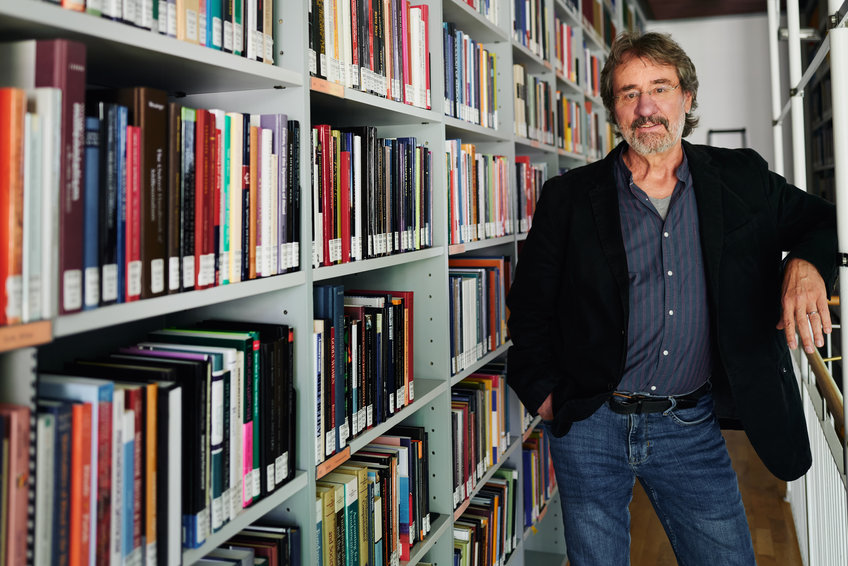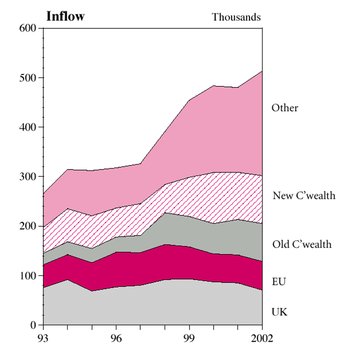Superdiversity - rethinking diversity
In his book, Steven Vertovec reevaluates social identities
Societies around the world are becoming increasingly diverse - in many different ways. One of the engines driving this diversification is global migration. Migrants today are much more different from one another than they were 25 years ago – not only in terms of their ethnicity, culture, nationality or religion, but also in terms of age, gender, education or legal status. The concept of superdiversity refers to the interplay of these categories and their impact on the social position of individual people. This is the subject of Steven Vertovec's book “Superdiversität – Migration und soziale Komplexität“ (translated from the English “Superdiversity – Migration and Social Complexity”).

The diversity of society is becoming increasingly complex

The internationally renowned social anthropologist coined the term "superdiversity" in 2007, which has since become firmly established in the social sciences. "Societies have always been diverse", says Steven Vertovec, "but superdiversity refers to a diversity that goes far beyond the previous level and is highly complex". An important impetus for the development of the concept was provided by a report of the Home Office with a graphic showing the influx of migrants into the UK from 1993 to 2002, sorted into the categories UK, EU, Commonwealth, Other. From 1997 onwards, the "Other" category grew massively. Steven Vertovec saw this as an indication that the concept of diversity in British society would have to be rethought.
Original graphic (right): Total international migration to UK by country of birth, 1993-2002 / Source: British Home Office
Multiculturalism – a rough pattern
A further impetus for him was his criticism of the concept of multiculturalism, which only links diversity to social categories such as ethnicity or cultural affiliation. It is based on the erroneous idea that the world is divided into fixed, separate groups - a narrative that is also used by right-wing populists. In fact, these groups are permeable and the identities of individual members are always multidimensional, i.e. a single person belongs to several currents or categories at the same time. According to the latest census in the USA, the number of people with a mixed ethnic background has tripled in the last ten years. "Increasingly, the suffix "trans-" is finding its way into our language: transsexual, transgender, transnational. This shows that many things in our super-diverse societies today are permeable and in flux, not rigid and closed," says Steven Vertovec.
"Thinking less in ethnic pigeonholes"
Interview with Steven Vertovec
The social anthropologist also believes that politicians have a responsibility to do better justice to this super-diverse society – at municipal, state and EU level. "It's about thinking less in ethnic pigeonholes than has been the norm in politics and administration to date," says Steven Vertovec. An example from education policy: "If pupils of a certain ethnic origin do badly at school, their migration background is usually blamed. However, the approach according to the concept of superdiversity would be to say that it is not a question of belonging to a specific ethnic group, but rather a complex mixture of many factors such as migration status, place of residence, social hierarchies and parents' level of education."
Leitkultur leads to discrimination
Recently, the concept of "Leitkultur" has re-entered the political debate in Germany. However, Steven Vertovec does not think much of this: "This term is very questionable because it is defined exclusively by what should not belong: no minarets, no headscarves, no foreign languages in the schoolyard. That quickly leads to people being discriminated against."
Threat narratives from the right
Steven Vertovec is particularly concerned about certain reactions to the increasing diversification of society. "There are many people who are insecure and who are caught up in threat narratives from right-wing parties. These parties present the public with an image of a supposedly homogeneous society whose stability is threatened by too much immigration. For example, "the migrants" are blamed for the poor economic situation or for the housing shortage, as in the Netherlands. "They have simply neglected to invest in housing construction for years, regardless of immigration," says the social anthropologist.
Steven Vertovec's research
Steven Vertovec's research focuses on gaining a better understanding of the phenomenon of superdiversity and its dynamics. But it is also about how the public perceives migrants and their increasing diversity and how they deal with it. For some years now, the social anthropologist has also increasingly focused on climate change and its impact on global migration.
Text: Eva Völker













